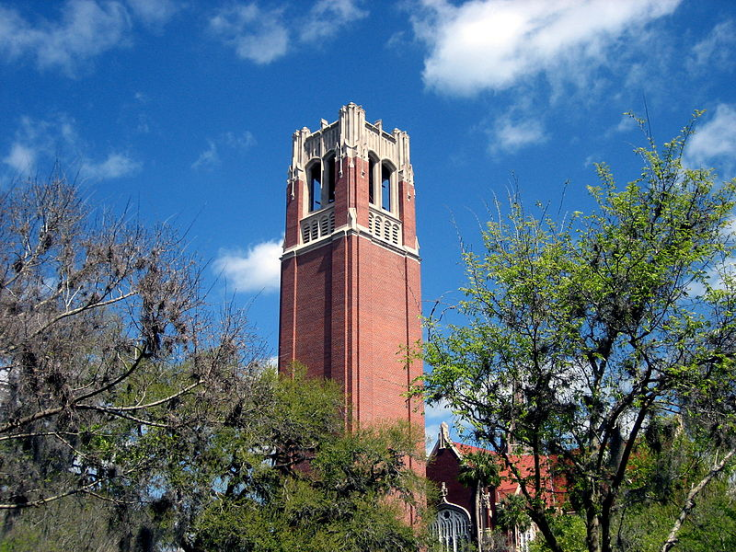Protest Erupts at University of Florida Following ICE Detention and Self-Deportation of Student
By
GAINESVILLE, Fla. — The University of Florida (UF) campus became the site of a heated protest on Wednesday afternoon as students rallied against U.S. Immigration and Customs Enforcement (ICE) following the detention and subsequent self-deportation of a fellow student, Felipe Zapata-Velásquez. The demonstration, which drew significant attention to the plight of international students, underscored growing tensions surrounding immigration policies under the Trump administration.
🚨DEPORTAN JOVEN COLOMBIANO EN FLORIDA POR CONDUCIR SIN LICENCIA
— Juan Torres (@juanpodcast1) April 10, 2025
Cámaras corporales de policías grabaron el momento en que Felipe Zapata Velásquez, un estudiante colombiano de 27 años, fue arrestado en Gainesville por conducir con la licencia suspendida y la matrícula vencida.... pic.twitter.com/ijNtDsKlku
Zapata-Velásquez, a 27-year-old Colombian national, was detained by ICE on March 28 after what began as a routine traffic stop in Gainesville escalated into a federal immigration case. According to reports, he was taken to the Krome Detention Center in Miami-Dade County before opting for voluntary deportation. His departure from the United States has sparked outrage among UF students, who argue that the incident reflects a broader crackdown on immigrant communities, including those legally present on student visas.
The protest, organized by student activist groups, saw participants marching across campus with chants of "ICE off our campus!" and demands for greater protections for international students. Demonstrators gathered outside UF's administration buildings, calling on university leadership to take a stand against what they describe as unjust immigration enforcement actions. "Felipe was a valued member of our community," said one student organizer, speaking anonymously to University Herald. "This isn't just about one person—it's about the message it sends to all students who come here seeking an education."
Details surrounding Zapata-Velásquez's case remain murky. ICE has not officially confirmed his detention at Krome, but Democratic Congressman Maxwell Frost of Orlando stated that the student was held there before being pressured to sign deportation documents. Frost condemned the situation, calling the Krome facility "hell on Earth" and criticizing the lack of transparency from federal authorities. Zapata-Velásquez's mother, Claudia Velásquez, told Latin American TV station Nuestra Tele Noticias that her son felt coerced into leaving the country, though she later confirmed his safe return to Colombia without clarifying whether it was a forced deportation or a voluntary exit.
The incident has reignited debates over the Trump administration's immigration policies, particularly its aggressive stance on deportations. President Donald Trump has vowed to remove millions of undocumented immigrants, a promise that has fueled enforcement actions nationwide. At UF, students pointed to comments from Secretary of State Marco Rubio, who recently boasted about revoking hundreds of student visas, as evidence of a targeted campaign against international scholars. "This is an attack on our diversity and our values as a university," one protester told reporters.
UF officials have yet to issue a formal statement on the protest or Zapata-Velásquez's case, leaving students frustrated by the administration's silence. "We need our university to protect us, not stand by while ICE tears our community apart," said another student participant. The lack of response has only amplified calls for action, with some advocating for UF to adopt sanctuary campus policies to shield students from federal immigration authorities.
The protest at UF is part of a broader wave of activism on college campuses across the U.S., where students are increasingly vocal about immigration enforcement. Similar incidents, such as the detention of a Tufts University PhD student and a Columbia University graduate, have raised alarm about the vulnerability of international students, even those with valid visas. At UF, the emotional toll of Zapata-Velásquez's departure was palpable, with demonstrators holding signs reading "No More Felipe" and "Education, Not Deportation."
As the Trump administration doubles down on its immigration agenda, the UF protest serves as a stark reminder of the human cost of these policies. For now, students are vowing to keep the pressure on, both on campus and beyond, to ensure their voices—and those of their peers—are heard.
© 2025 University Herald, All rights reserved. Do not reproduce without permission.








